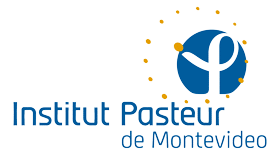Researchers at the Institut Pasteur de Montevideo are currently testing three compounds that have shown promising results for treating Hereditary Hemorrhagic Telangiectasia (HHT), a rare genetic disease that affects the shape and function of blood vessels and can be life-threatening in severe cases. On the International Day of this condition (June 23), the institute continues to advance its work towards developing a treatment for a condition that currently has no cure.
‘We are currently testing these drugs in the laboratory to definitively determine their therapeutic potential for the disease’, said Santiago Ruiz, a member of the Laboratory of Metabolic Diseases and Aging at the Institut Pasteur de Montevideo, who leads this study. They have recently started testing on endothelial cells (which line the interior of blood vessels) extracted from HHT patients and are preparing to begin trials in mice.
HHT in Uruguay
In Uruguay, it is estimated that around 800 people are affected by HHT. Globally, the disease has a very low prevalence (hence classified as ‘rare’) of one case per 5,000 people. Due to the small number of cases, lack of awareness complicates diagnosis and treatment.
It is known that this disease arises when mutations in genes affect and alter the function of certain proteins involved in controlling the shape, size, and structure of a patient’s blood vessels. Therefore, one of its manifestations is frequent nosebleeds and bleeding in the digestive tract, which can lead to anemia. Another visible symptom of the condition is the presence of dilated vessels in the skin and the mucous membrane. The disease also causes arteriovenous malformations in different organs (usually affecting the brain, liver, and/or lungs), and depending on the affected organ, it can lead to severe complications and even death of the patient.
So far, there is no cure for the disease; only palliative treatments exist. Symptoms are managed with drugs that can help stop the bleeding, for example, but do not resolve the malformation in an organ.
Therefore, Ruiz, in collaboration with members of the laboratory and doctors from Pereira Rossell Hospital and Maciel Hospital (both located in Montevideo), is dedicated to studying HHT to find a drug that can alleviate the impact of the disease and, if possible, cure it.
Drugs under study
Ruiz has been working on HHT since 2015 and developed part of his research at the Feinstein Institutes for Medical Research (US) during his training abroad.
There, Ruiz was part of a team that, among other things, focused on a drug repurposing strategy: they evaluated 700 drugs that had already been approved for use in other diseases and tested them to see if any could be used in treating HHT.
Upon returning to the Institut Pasteur de Montevideo in 2021, Ruiz continued this work focused on the five drugs that had shown the best results, aiming to analyze them in depth. He found that three of these drugs can normalize the functioning of the affected mechanism in endothelial cells that cause the disease.
‘We want to find drugs that act more specifically on the mechanism that produces the pathology to improve treatment success, provide more options for its management, and therefore improve the quality of life of patients. Although there are still several phases of research ahead, the advantage of using drugs that are already approved is that the process to use them as treatment is faster than with new drugs that have not been validated’, concluded Ruiz.


